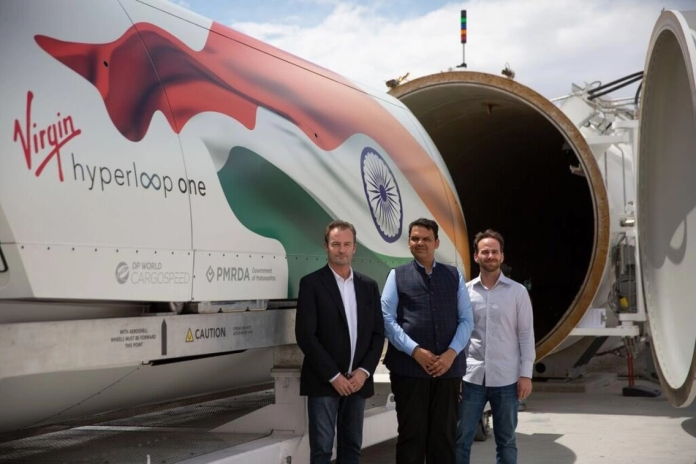Virgin Hyperloop One is likely to commence Phase 1 work on its proposed Mumbai-Pune ultra-high speed hyperloop route in India before the end of 2019, Construction Week reported quoting the group’s managing director for the Middle East and India.
Harj Dhaliwal, the group’s managing director for the Middle East and India, told Construction Week that Virgin Hyperloop One is looking to start Phase 1 work on its proposed Mumbai-Pune ultra-high speed hyperloop route in India before the end of 2019. Upon the completion of the project, the travel time to cover the 140 km journey from Mumbai to Pune can potentially reduce from 3.5 hours to just 25 minutes.
Virigin Hyperloop One’s Indian route will link Navi Mumbai International Airport in Mumbai to the city of Pune, and is expected to benefit the combined population of 26 million of both the cities.
Phase 1 of the Mumbai-Pune project involves building a 11.8 km demonstration track with private investment of $500 million by 2023. It can adhere to the established timelines as there should not be any complications with the land acquisition process.
Phase 2 will see the rest of the stretch being built with the track bifurcating into two in Mumbai — one headed to BKC, and the other to Navi Mumbai to facilitate cargo movement. The hyperloop corridor will be built either under the Mumbai-Pune Expressway or run parallel to it.
Hyperloop is envisaged as a new mode of transportation that moves freight and people quickly, safely, on-demand and direct from origin to destination. Passengers or cargo are loaded into the hyperloop vehicle and accelerate gradually via electric propulsion through a low-pressure tube.
The vehicle floats above the track using magnetic levitation and glides at airline speeds for long distances due to ultra-low aerodynamic drag.
Hyperloop systems will be built on columns or tunnelled below ground to avoid dangerous grade crossings and wildlife. The advocates of the transport technology claim that it fully autonomous and enclosed, eliminates pilot error and weather hazards besides ensuring safety and cleanliness, with no direct carbon emissions.
An estimated 80 to 199 million passengers travel between the Mumbai and Pune annually. Virgin Hyperloop One plans to meet this demand by sending pods several times per minute, supporting up to 16,000 passengers per hour per direction at peak capacity,
“We signed the [memorandum of understanding] with Maharashtra state in November 2017,” said Harj Dhaliwal in conversation with Construction Week.
“We then did a pre-feasibility study to demonstrate the economic financial case to the state, federal authorities, and our investors,” he added, noting that the process concluded in February 2018 with the signing of a binding framework agreement.
“Phase 1 will be dedicated to building out the initial part of the project – so it’s not something that stands alone in a test facility, but part of the permanent alignment and route” Dhaliwal added.
“We will then do all of our demonstration to prove to the regulators that our system is reliable, safe, and certified for use by the public. Our timeline is that by the end of 2019 we want to commence construction on Phase 1, which is the ‘demonstrator phase’, as we call it”.
Virgin Hyperloop One is hoping to get certification work completed between end-2023 and early-2024, which would allow the firm to move into Phase 2, including construction work.
Virgin Hyperloop One’s rival firm Hyperloop Transportation Technologies (HTT) has proposed two routes in India including one linking new Andhra Pradesh capital Amaravati to Vijayawada but not much information is available on the progress of their proposal.


